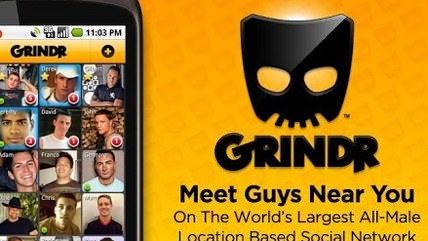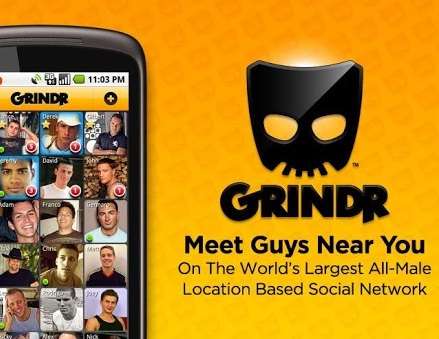Jonathan Rauch Explores America's Enormous 20-Year Shift on Gay Issues, But Where's the Credit for Tech Innovations?
Americans are finding out about the gays next door, because communication improvements over the past 20 years allow them to stay next door


Reason contributor Jonathan Rauch uses the cover of the latest issue of American Review to discuss the remarkable, breathtaking shift in public opinion on gay and lesbian issues in this country since 1995. Rauch makes note of the many factors resulting in cultural changes, but misses one key point (which I'll get to). He opens by reminding us that it wasn't all that long ago that even floating the idea of legally recognized gay marriages suggested you were a crazy person:
The fall of 1995 does not really seem all that long ago, does it? To me, it is as vivid as yesterday, yet also ancient as Babylon. I am walking with my father in Belfast, Ireland, and he is urging me to abandon my rash idea, which is to write in support of same-sex marriage. Why? I am puzzled: he has nothing against gay people, nor any disapproval of his gay son. The problem, he admonishes me, is that the idea of a man marrying a man, or a woman marrying a woman, is nuts. In fact, it is so far outside the realm of the possible that I will ruin my credibility as a journalist by supporting it. People will think I am nuts.
In 1995, his advice was not unreasonable. The idea of same-sex marriage seemed disgusting or risible to its opponents (who were practically everybody) and a pipe dream to its supporters. Some advocates imagined that their grandchildren's generation might just possibly live to see it. In January of 1996, when I worked at The Economist magazine and we published a cover leader endorsing same-sex marriage, the mail which poured in was exceeded in volume and hostility only by the onslaught against the magazine's call for the abolition of the monarchy.
The Supreme Court struck down sodomy laws only 10 years ago. Now a baker's dozen of states recognize gay marriages. Of course, it's not all rainbows and disco balls. Because the Supreme Court in its gay marriage cases last term declined to rule on whether recognition was a right (confining the ruling to requiring the federal government recognize gay marriages where legal), there's still a struggle ahead. But culture shifts that have pushed America toward more acceptance of not freaking out over people being gay are not likely to reverse:
Begin with the obvious: demographics. It is very important, but perhaps not as important as you think. Support for gay marriage is correlated with age; three in four Americans under 30 favour it. Gay marriage opponents are dying off and being replaced with proponents. More is going on than generational replacement, however. We know this because support has increased impressively among every generational cohort. Tellingly, support almost doubled over the past ten years, Pew finds, among "silent generation" members born between 1928 and 1945 — people in their late 60s and older. A lot of Americans, not excluding older Americas, have changed their minds.
One reason is what I think of as the Tocqueville effect. Alexis de Tocqueville, the Frenchman whose observations of America in the 1830s remain shrewdly relevant, famously remarked on Americans' deference to majority opinion: "As long as the majority is still undecided, discussion is carried on; but as soon as its decision is irrevocably pronounced, everyone is silent, and the friends as well as the opponents of the measure unite in assenting to its propriety." Although he exaggerates, the broad point remains true: the legitimising effect of public opinion is such that, other things being equal, majority support tends to amplify itself. Even if I have doubts about gay marriage, the fact that most of my countrymen are on the other side weakens my resolve and impels me to acknowledge the legitimacy of their view. The difference between support at, say, 55 per cent versus 45 per cent — that is, the different between majority and minority standing — is one of kind, not merely of degree. That is not to say that opposition evaporates or crawls under a rock when it loses majority standing. But its power and relevance are greatly reduced.
Rauch goes further in exploring why individuals have had changes of heart on gay issues. He uses David Blankenhorn, the Proposition 8 defender whose switch in position I wrote about last year, as an example:
Why the change of heart? Not just, or even mainly, because he had been argued out of his position. Rather, he had come to know gay people and gay couples, and had come to understand better their lives and aspirations. "I changed my opposition to gay marriage because of personal relationships," he wrote in the Los Angeles Times. "Put simply, becoming friends with gay people who were married or wanted to get married led me to realise that I couldn't in good conscience continue to oppose it."
He spoke not just for himself but for millions. When Pew asked people, in 2013, why they had changed their minds on gay marriage, the response they most often volunteered was that they know someone who is gay. Today, Pew finds, 87 per cent report knowing someone who is gay or lesbian, and half have a close friend or family member who is gay. Where homosexuals used to seem a shadowy menace, they have come to be the couple next door, or the colleague at the office. It is hard to hate or fear people you know and like. The process of "coming out" has proved to be the most potent of all forms of egalitarian activism.
Read Rauch's whole essay here.
I have one criticism of Rauch's analysis in that it ignores another major transformation that has taken place over the past 20 years: our massive technological and communication revolution. How did gays become the couple next door or the colleague in the office? Sure, more gay people have come out of the closet, but there's more. In 1995, gay men and women were still having to turn to personal ads in urban gay publications or friendly alternative weeklies to find love (or just, you know, sex). The rise of gay ghettos in cities like New York, San Francisco and Atlanta were a result of the need for places where gays and lesbians could not just be open about themselves but to find each other and build a community. But this also meant that gay people frequently weren't the "people next door" because they had moved away.
The Internet brought about huge changes. Gays didn't have to move away to find others like them. They didn't have to move anywhere. Technology allowed gays in non-urban environments to find each other, to create networks and support systems and allow them to find happiness without having to turn to the ghetto. It reduced the fear of being "the only gay in the village" and introduced the opportunity to find others to deal with rejection, depression and to simply be more courageous. Gay communities have cropped up in places where it would have once seemed crazy – like Salt Lake City. One of the major reasons more Americans are discovering their neighbors are gay is because they're staying put.
It is remarkable how amazingly different and better life has become for gays and lesbians over the last 20 years. But I think the huge changes that have come about in technology and communication over that same period don't get enough credit sometimes.


Show Comments (65)